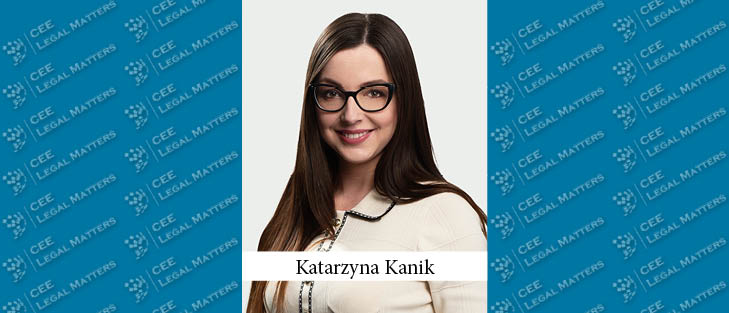Neither Polish nor European legislation explicitly specifies how an influencer should publish their content on social media, and what they should avoid in order not to run the risk of violating Polish consumer protection rules.
However, no one should have any doubt that the core of any influencer activity is advertising, therefore any person who plans to start an online marketing activity directed at Polish consumers should familiarize themselves with the basic obligations regarding the publication of advertising content on social media. Influencer activity is subject to control by the Polish anti-monopoly authority regarding possible violations of the collective interests of consumers (even without a registered business, influencers can be considered entrepreneurs).
In Poland, advertising issues are regulated primarily by the Act on Combatting Unfair Market Practices and the Suppression of Unfair Competition Act, which implement EU law, i.e. Directive No. 114/2006 and Directive 2005/29/EC of the European Parliament and of the Council of May 11, 2005, concerning unfair commercial practice.
And what is advertising?
There is no legal definition of advertising in Polish competition law. Helpful in this regard is the law of the European Union (Directives 2006/114/EC of the European Parliament and of the Council of 12 December 2006 concerning misleading and comparative advertising), according to which “advertising” means a representation in any form during a trade, business, craft or profession to promote the sale of goods or services.
Crypto advertising not for influencer
Advertising published by an influencer on social media, as directly related to the promotion or encouragement of the consumer's purchase of a product or service, constitutes a market practice that may be prohibited under certain conditions. This is the case, among others, with crypto advertising.
The definition of this concept included in the Polish Act on Combatting Unfair Market Practices is consistent with the definition adopted in the EU Directive on such practices. In short, crypto advertising is a form of promotion that is presented in such a way that the recipient does not recognize it as an advertisement, despite the fact that the advertiser pays for its publication.
How to avoid the accuse of using crypto advertising ?
First and foremost, an influencer should refrain from promoting goods without properly disclosing that it is an advertisement. This seems simple, but what does it mean in practice? Proper marking of an advertisement is first and foremost a clear and legible indication that the message in question constitutes an advertisement. Whether the influencer receives a material benefit from the publication of the advertisement and the form or term of cooperation established by the influencer with the advertiser are irrelevant to this obligation.
Facilitating the activities of influencers in Poland are the recommendations of the Chairman of the Office of Competition and Consumer Protection (the Polish anti-trust authority), among which one can find a suggestion that an influencer should use the functionalities of social media (e.g., marking the option indicating an advertisement), but should not be limited to them and independently in each material introduce appropriate markings (two-stage marking).
In addition, according to the recommendations of the Chairman of the OCCP, advertising published by influencers should indicate the advertised brand and be:
- Placed in a conspicuous place, such as at the beginning of the description or recording,
- Distinguished from the rest of the content,
- Written in a clear and sufficiently large font,
- Made in Polish, (if the influencer's profile is conducted in this language).
What about an influencer's self-promotion?
Self-promotion (influencer’s own brand advertising) refers to a situation where an influencer is in business for certain products or services and advertises those products or services on their social media channels. Self-promotion, as advertising, also requires proper marking - the rule is that social media content must not appear neutral if it is advertising material, and the purpose of its publication is to increase sales of the influencer's own goods or services.
Gifts
The situation is slightly different with gifts. If an influencer decides to publish when he receives his first gift from a brand, he does not have to mark this content as advertising material. However, he should inform that the product in question was received as a gift.
If, however, the same advertiser sends the influencer subsequent gifts, posts including their publications should include information about the advertising material.
According to the OCCP, unambiguous indications of commercial character will be the following:
- For advertising material - #advertising or [advertisement], #advertisingmaterial or [advertising material] #advertisingcooperation or [advertising cooperation], #sponsoredpost or [sponsored post] #sponsoredmaterial or [sponsored material] #paidcooperation or [paid cooperation], #video #relation #post #material + #advertising #sponsored = e.g. #video #advertising, #relationshipsponsored, XYZ brand advertising, Paid cooperation with XYZ brand.
- For self-promotion/auto-advertising - #autopromotion or [self-promotion] #auto-advertising or [self-advertising] #own brand or [own brand].
- In case of receiving a gift (the first gift, for subsequent gifts it is advisable to use designations as for advertising material) - #gift or [gift] #gift or [gift]
- And in other cases (invitations to events, involvement in tests) - it is worth indicating that the material was created in connection with an invitation received to participate in some event, tests, presentations - this allows the recipient to judge for themselves whether it is advertising content or neutral coverage.
Advertising contrary to the law
In addition to prohibiting an influencer from using crypto advertising, he should keep in mind that acts of unfair competition in advertising are also illegal advertising, so when starting his publicist adventure in social media, an influencer should keep in mind certain prohibitions or restrictions under Polish laws. This applies to:
- Alcoholic products;
- Tobacco products;
- Medicines;
- Dietary supplements;
- Financial products and services;
Consequences of violations
If the Chairman of the OCCP becomes suspicious that an influencer has violated the prohibition on violating the collective interests of consumers, he may initiate investigation proceedings against the influencer, which may result in an administrative decision declaring the practice to be in violation of the collective interests of consumers and ordering the influencer to cease using it.
In addition, a fine of up to 10% of the turnover achieved in the fiscal year preceding the year in which the fine is issued, and may be imposed on the influencer, regardless of the influencer's fault, which means that the fine may be imposed even if the influencer inadvertently commits the violation. (For example, due to ignorance of the law).
Influencers should also bear in mind that the Chairman of the Office of Competition and Consumer Protection should be cooperated with, as the authority may impose a fine of the equivalent of up to €50,000,000 on an entrepreneur if the entrepreneur, even if inadvertently, fails to provide the information requested by the Chairman of the OCCP. Recently, the Chairman of the OCCP issued as many as 6 decisions to punish influencers for failing to cooperate with the OCCP. The fines in total equate to PLN 139,000.
In addition to administrative and legal liability, influencers should also remember that for their actions they may incur civil liability and, in some cases, even criminal liability.
As you can see, advertising law in the age of influencer marketing focuses primarily on honesty and transparency with consumers. The growing number of influencers and the popularity of social media platforms are forcing anti-trust authorities to adapt their approach to the rapidly changing market. Influencers themselves, meanwhile, should be mindful of the rules governing online advertising, especially given the importance of their responsibility with compliance of Polish law.
By Katarzyna Kanik, Associate, KWKR Konieczny Wierzbicki and Partners















